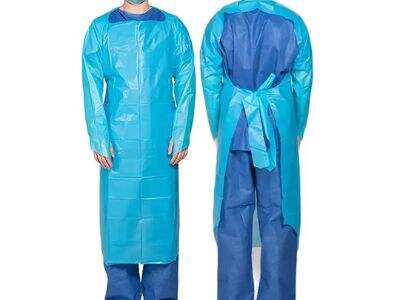Antimicrobial drapes are valuable tools for protecting patients from infections during surgery. Xuhe is a furniture maker who creates special kinds of drapes that doctors and nurses can use to keep germs from spreading. Let’s take a closer look at how these drapes function, as well as why they are so critical to hospitals.
The significance of antimicrobial drapes in SSI prevention.
When people have surgery, doctors have to take great care to ensure that germs don’t make their way into the spot where the surgery is taking place. Surgical site infections can make patients extremely ill, and can lead to further complications. That is why antimicrobial drapes are essential. These specialized drapes have a layer within them that can kill germs, helping to keep the area sterile, and by extension, safer for the patient.
Investigating the benefits antimicrobial drapes play in the reduction of infection rates in hospital situations.
There are various ways in hospitals and other health care facilities to control infections and keep patients healthy. And antimicrobial drapes are a big part of it. With the help of these drapes during surgeries, doctors and nurses can ensure that germs aren’t hampering the effort to get patients healthy. This additional defense is crucial to keeping infections out.
Efficacy of antimicrobial-impregnated drapes in decreasing the risk of infections during clinical use.
Medical procedures require a lot of tools and equipment that can be contaminated by germs. Antimicrobial drapes help minimize the risk of contamination by establishing a barrier between the patient and bacteria or other potential pathogens in the surgical site. By using these drapes, doctors and nurses are free to do their job without concern about bacteria spreading and subsequently developing into infections. This additional layer of protection is essential for patient safety and optimal procedure performance.
Incorporating AMDs as an integral part of operative infection control measures.
Infection control protocols are policies that health care workers follow to avoid transmitting infections to patient. Antimicrobial drapes have been used with these protocols. Using Xuhe’s anti-microbial drapes for all surgical procedures will help hospitals prove they have taken every step in infection prevention and protection of patients. This proactive method of infection control is critical to ensuring a safe and healthy environment for all in the healthcare environment.
Benefits of surgical antimicrobial drapes on patient outcomes and healthcare costs.
The use of antimicrobial drapes, as part of infection prevention, will greatly enhance patient outcome and mitigate against nosocomial infections. If patients are operated on under the cover of antimicrobial drapes, infections are less likely to occur, and recovery times and overall health prospects will improve. And, by containing the spread of germs in healthcare facilities, antimicrobial drapes aid in the prevention of infections in the first place – a point not lost on the advocates of patient safety and lowering healthcare costs.
To sum up, Under pad Thailand factory are one of the few important means of controlling infection in healthcare settings. By recognizing the value of these drapes in the fight against SSI, investigating the part they play to improve infection control, appreciating their effectiveness in controlling the spread of contamination, and making the drapes a linchpin in infection control best practices, hospitals can improve patient results and reduce HAIs. By using Xuhe's antimicrobial drapes, patients can have the assurance of having a safe and clean environment, providing the best care possible.
Table of Contents
- The significance of antimicrobial drapes in SSI prevention.
- Efficacy of antimicrobial-impregnated drapes in decreasing the risk of infections during clinical use.
- Incorporating AMDs as an integral part of operative infection control measures.
- Benefits of surgical antimicrobial drapes on patient outcomes and healthcare costs.

 EN
EN
 AR
AR
 BG
BG
 HR
HR
 CS
CS
 DA
DA
 NL
NL
 FI
FI
 FR
FR
 DE
DE
 EL
EL
 IT
IT
 JA
JA
 KO
KO
 NO
NO
 PL
PL
 PT
PT
 RU
RU
 ES
ES
 SV
SV
 TL
TL
 LT
LT
 SR
SR
 SK
SK
 SL
SL
 UK
UK
 VI
VI
 SQ
SQ
 HU
HU
 TH
TH
 AF
AF
 MS
MS
 GA
GA
 BE
BE
 HY
HY
 KA
KA
 BN
BN
 BS
BS
 UZ
UZ
 XH
XH
